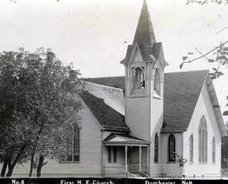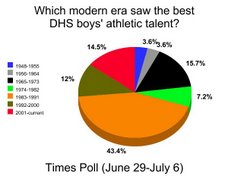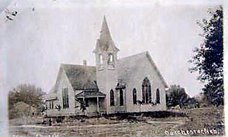Dorchester farmer and civic leader Robert “Bob” Kasl, passed away Tuesday, Dec. 23, 2025, in Seward at the age of 94. Funeral Services will be held Friday, Jan. 9, at 11 a.m. at Sokol Hall in Wilber. Visitation will be held on Thursday, Jan. 8, from 4 - 7 p.m. at Kuncl Funeral Home in Crete.
Bob was born on
March 9, 1931, in Dorchester to George F. Kasl, Sr. and Emma Rezabek. He grew up on a farm south of
Dorchester along with his eight siblings. He attended District #62
school through the eighth grade and later received his high school
diploma. Due to hard times, Bob and his brothers Junior and Rich, left
school and went to work to help build the Lincoln West "O Street" via
dock. Bob served in the Army National Guard from 1950 to 1958. In March
1953, he was located in Kansas and Colorado bases and in April 1955 in
Okinawa.
Bob met his wife, Marva while she was
working at her parent’s business, the Halfway Station. They were married
on December 30, 1955, during the Army's Christmas break. They rented
their first home south of Dorchester, where they lived for a few years
and later moved closer to Dorchester and rented a farmhouse for several
years. In 1967 they were excited to purchase the farm where they built a
new home and resided for several years raising their family until they
moved into town in 1998. They were married for 69 years and were able to
celebrate their 70th Anniversary together on December 30th.
Bob and Marva had five children, Robert
Wayne (Bobby), Sandra Lyn (Sandy), Jeanine Joyce (Jean), Judith Faye
(Judy) and Bradley Alan (Brad). While their family was growing up, Bob
took part in many of their activities, including being a Dorchester
School Board member for over 25 years. He was proud to be a member of
the Dorchester American Legion Post #264 for over 70 years, which he
held many offices at the local and state levels. Bob and Marva enjoyed
traveling to several Legion and Auxiliary meetings and conventions
across the states. Bob was also a member of the Dorchester United
Methodist Church and a member of ZCBJ Tabor Lodge, where he was recently
honored with his 50-year membership pin.
Bob loved farming, which he did for over
75 years. He loved to share his stories and knowledge about farming
with others. Bob and Marva worked together to expand their farm
operation throughout their lives. Bob continued to be active in his
farming operation and kept up with the many advances of farming over the
years.
Bob and Marva attended many family
activities. They enjoyed teaching and helping their children,
grandchildren and great children with their 4-H projects, boy scouts,
parade floats and giving support in all their activities. Several family
members felt Bob and Marva enjoyed participating in their activities
more than the kids did! Unfortunately, Bob and Marva were faced with the
loss of three children, Bobby, Jean and Brad. Their loss made them
focus on what was important in life, their family.
Bob and Marva also enjoyed traveling and
were fortunate to travel to Hawaii, Alaska, Mexico, the Czech Republic,
Arizona, Colorado and more. They also enjoyed going gambling. Bob would
be envious if Marva won more than him! Bob loved his card games and was
known to shoot the moon occasionally depending heavily on his partners
for points!
Bob is survived by daughters Sandy
(Chuck) Rains and Judy (Mark) Bors. Son-in-law Paul Essman,
Daughter-in-law Sheri (Kevin) Schuetze. Grandchildren: Cory (Amy) Rains,
Megan (Justin) Pekarek, Cassie (Tyson) Vogt, Taylor Bors, Lucas
(Chelsea) Apfelbeck, Clarissa Bors, Andrew (Natalie) Essman and Samantha
(Chris) Hobelman. Great Grand Children: Carly, Brody, Chloe, Jeplin,
Eastyn, Judge, Madden, Burke, Callan, Grace, Chandler, Stassi, Nazaria,
Snoh, Sullivan, Grey, Sunny, Lucy, Stevie, Peyton and Hudson. Great,
great Grandchild: Cairo. Many friends and family.
Bob is preceded in death by his wife
Marva Hayek Kasl, sons Bobby and Brad Kasl, daughter Jean Kasl Essman,
his parents and siblings, in-laws and many family members.
In lieu of flowers, memorials to be designated to the Dorchester American Legion Post #264.
Arrangements entrusted to Kuncl Funeral Home.

































































